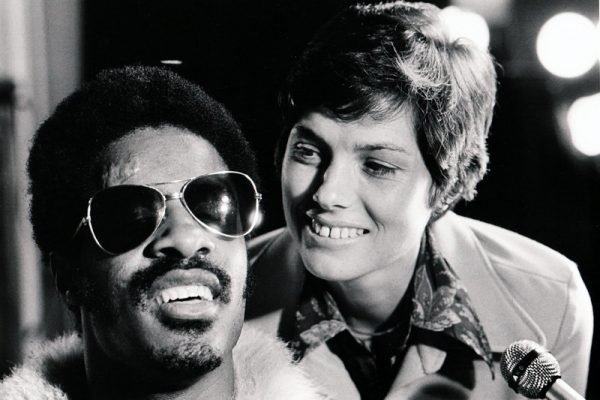Original Publication: New York Woman, May 1990
Pardon me if I seem a little distracted in this column. I don’t get much sleep, and I don’t have time to write. You see, my husband was transferred, and I’ve just moved to Washington, D.C. (with a weekly commute to New York), so I’m too buy comparing stories in this morning’s Wall Street Journal, New York Times and Washington Post on the latest wrinkle in the savings and loan crisis, an issue I barely noticed in New York. When I finish reading all three, I have to plow through the editorial pages, find out who William Safire is picking a fight today, making sure Evans and Novak haven’t put the kibosh on the latest Bush appointee and, on my fourth cup of coffee (it’s always final-exam time in Washington), read the nonfiction book reviews, preferable the latest thesis on Third World debt.
This is not a town for the brain-dead, no matter how rich. Being out of the know is as much of a social blunder as slurping your soup. It just isn’t tolerated. The fast track is for the vastly informed – Washington-style. Thus I can skip practically all fiction, all movies and anything on television except the news and move on to the Post’s dishy Style section. Speaking of television, I would be loath to admit inside the Beltway that I ever watch anything on TV but the news. Nonetheless, the Post’s witty TV writers, Tom Shales and John Carmody, are essential for me and everyone else in the media, especially Carmody’s Captain Airwaves column, the bible of the industry. By reading Airwaves I always know who is being hire and fired on the Sunday talk shows. You naïve New Yorkers probably think these shows exist to illuminate the public on the latest national issues. Perhaps they do – incidentally – but their true function is to raise the lecture fees of the hotshot journalists who appear on them.
To be a mover and shaker in this town means, of course, that sex is no longer possible. Among those who trade in visibility – certain power couples come immediately to mind – orgasms have been replace by national exposure on network TV. And even if these network heavy breathers don’t have to wake up to be on Today – the ultimate Washington way to start your day – sex in the A.M. is as out of the question as it is at night. I mean, nobody can ever go to sleep without watching Nightline. And even after that, those lucky enough to have a cable hookup have to check in with CNN just to make sure nothing broke in the world during Ted Koppel’s program. Then, bright and early, by 7:00 A.M., they must be fully alert to hear what might have transpired at a Washington dinner party the night before, to get the latest spin on the first morning news lead. Information, the more inside the better, is nuanced to the max in this town. So who had time for mundane – or even kinky – sex?
Anyway, if you live in Washington, why would you want to make love when you could find out the latest reason the B-1 bomber will never fly? Let’s, as they say, prioritize here. And if you dare not know why the B-1 doesn’t fly, you’d better be able to recite your favorite memos from the recently published From the President: Richard Nixon’s Secret Files, or you, my dear, will be a total schlump on the party circuit.
The equation for understanding life in Washington is simple: information and access are power. They will get you whatever money can buy in New York. You don’t have to be rich or gorgeous or even order arugula when you secretly pine for iceberg. You can have your déclassé lettuce and eat it too. As long as you have government or media power, you can be a positive toad and have people catering to your every whim. You can eat free every night – nobody on the A-list circuit really cares about restaurants after lunch, anyway. You can have a free car, free phone and fax machine in your house and get even more information – free! People will be whispering in your ear endlessly. Your husband or wife can be ugly and boring, and suddenly tons of lobbyists and lawyers will find him or her absolutely charmant(e). (That’s probably why Georgette Mosbacher, who’s merely run-of-the-mill glamourous in New York, has caused so many heads to turn here: Washingtonians tends to be dowdy – and prefer it that way.) As one very attractive network correspondent told me, “You don’t want to be too chic here, because if you are, you’ll stand out and people will stare at you.” Disapprovingly.
At my very first high-powered dinner party a few weeks ago, I entered the living room and immediately stared to pull my skirt down to make it completely cover my knees. Then I made a grand faux pas. After looking around at the big highball glasses and assuming that everyone else was drinking vodka tonics, I ordered a safe white wine. How ridiculous! Naturally the power puritans were drinking Perrier and lime – alcohol might allow the wrong info to slip out. I got even shakier when I realized what a mistake it was to have passed up the tacky rhinestone brooch and matching earrings I had seen at the Columbus Avenue flea market. The only thing that calmed me was a look at the living room décor. Suddenly I realized I needn’t worry about the hideous wallpaper in the dining room of our newly rented house. Ambience does not depend on aesthetics here; it depends how many Secret Service men – and women – are out in your front yard. You know you’ve truly arrived when they’re also standing on your neighbor’s garage roof.
There’s no doubt about it. Washington living is definitely different from New York, and not just because of the Secret Service. In a city where the operative ethos is not greed, daily life is filled with little delights. My aerobics class works on the honor system: if you owe money, you put your check into a cigar box. When I was recently called to New York on short notice my son’s nursery-school teacher drove him to school for me. And today, in the pouring rain, the man at the dry cleaners’ ran out of his shop and into the muddy driveway where I was parked. Soaking wet, he leaned into my front seat and thrust out his hand. “Here,” he said, “you gave me twenty cents too much.”
It’s so comforting to know that the niceties still prevail, and it’s so liberating not to worry about whether you’ll make enough money to have a wing at the Met named for you. On the other hand – all you cheapskates who were against the congressional pay raise – Washington is a very expensive town. Because there are only two major supermarket chains here, food costs are often much higher than in New York, and real estate prices are stratospheric in a market that has not yet softened, as it has in much of Manhattan. Not surprisingly, private schools are just as expensive as in New York and perhaps even more intensely competitive, as befits a town where status is based so heavily on communication and on winning public approval.
I guess I am most amused to see how far government influence prevails. Did you know that one of the hottest private nursery schools here is called the National Child Research Center? And in a town full of diplomats, etiquette classes for children abound – instruction in the ways of Washington begins practically at birth. The week before President Bush was inaugurated, some friends of mine who were hosting a dinner for an outgoing media VIP were thrilled to learn that the then-vice president was planning to pop over for a few minutes during drinks. For days their children ages seven and two, were drilled on the proper protocol for meeting the president-elect and Mrs. Bush. On the evening of the visit, the children posed proudly with the First-Couple-to-be. The following week my husband rang their doorbell. When the two-year-old heard his father jovially greeting my husband, he turned to his baby sitter and said, “It’s probably Bush.”
Power withdrawal for the older boy has been difficult. Now that he’s had the president-elect’s autograph, he keeps asking his mother why he can’t just drop by the White House to say hello to his new friends. At the tender age of seven he’s already grasped the most fundamental rule here in Washington – access is everything.
This article is typed from the original material. Please excuse any errors that have escaped final proofreading.




No Comments